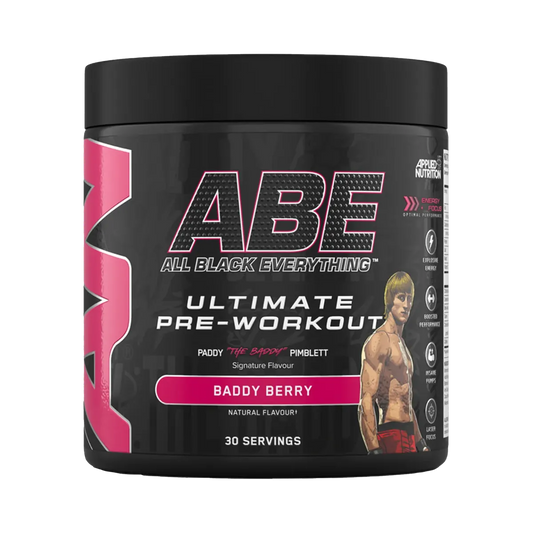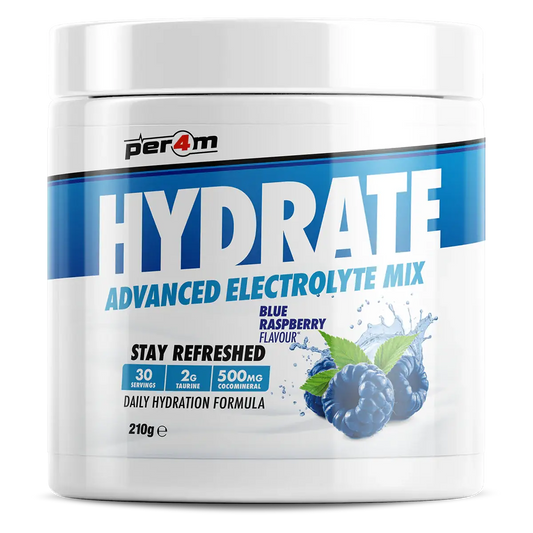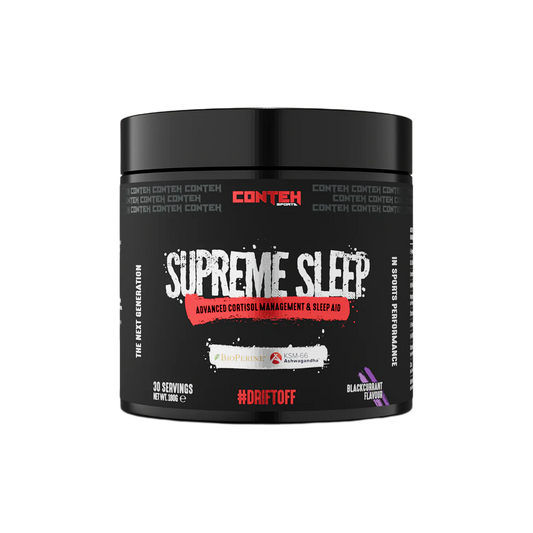Rest Days Aren’t Empty Days—Here’s Why Supplements Still Matter
You've got your shaker cleaned, your creatine dosed, and your multivitamin ready—but it's your day off the gym. So... should you even bother?
For most people, rest days mean recovery. But recovery isn’t passive—it’s an active biological process where your body rebuilds, rehydrates, and resets. And that means the right supplements still play a role, even when you’re not lifting, sprinting, or smashing your circuits.
From hydration and muscle repair to gut health and hormone balance, what you take on your off days can determine how hard you hit it when you're back. So before you shelve the tub of creatine or skip your daily dose of vitamins, let’s dig in.
1. Is It Okay to Take Supplements If You Don’t Work Out?
Absolutely—especially if your supplement routine supports general wellness, not just workouts. Products like:
-
Multivitamins help fill dietary gaps
-
Ashwagandha supports stress control and hormone balance
-
Omega-3s aid inflammation and heart health
-
Hydration drinks like Applied Nutrition Body Fuel help maintain electrolyte levels throughout the day
These are valuable on training days and off days alike. The key is understanding which supplements are tied to gym effort, and which are tied to lifestyle.
2. Should I Take Creatine When I’m Not Training?
Yes—daily creatine intake is essential for full saturation and benefit. Unlike caffeine or beta-alanine, creatine doesn’t rely on timing around workouts. It works through long-term saturation of muscle stores.
So even if today’s agenda is just dog walks, emails, and Netflix, that 5g scoop of Naughty Boy Prime Creatine still has a job to do.
Skipping on rest days? That’s like planting seeds and forgetting to water them.
3. What Happens If I Take Pre-Workout and Don’t Work Out?
Taking a pre-workout for no reason isn’t dangerous, but it’s unnecessary.
If it’s a stim-heavy product like EHP Labs Pride, expect:
-
A rush of caffeine
-
Heightened alertness
-
Possibly jitteriness or crash if you’re sedentary
If you’ve accidentally downed your pre before skipping the gym, use that energy productively—tackle some deep cleaning, go for a brisk walk, or use it for creative work.
That said, save your pre for training days. There are better tools for off days (like hydration, vitamins, and sleep aids).
4. Should I Take Protein Even If I Don’t Work Out?
Yes—but it depends on your overall daily protein intake. Training or not, the goal is to hit your protein target so your body can maintain muscle mass, repair tissues, and stay metabolically efficient.
A scoop of Reflex Clear Whey Isolate is still a solid snack:
-
Low calorie
-
Refreshing and light
-
Quick to absorb
-
Easy on the stomach
It’s especially useful if you’re in a calorie deficit or struggle to hit your macros without meal prepping.
On rest days, spread protein across the day—don’t front-load like you might around a workout.
5. When Should a Beginner Start Taking Supplements?
Many beginners think they have to “earn” their supplements by being consistent first. Not true. Supplements don’t judge.
If your diet lacks variety, if your energy dips are real, or if you’re trying to support a new habit with nutrition, starting early can help:
-
Multivitamin: Covers the gaps while your food habits catch up
-
Creatine: Boosts performance and recovery even as a newbie
-
Hydration drinks: Improve focus and output in those early, tough sessions
-
Protein powder: Eases your muscle repair needs while you figure out macros
The key is choosing products that match your goals, not your training frequency. Supplements should support your lifestyle, not dictate it.
Up Next in Part 2:
We'll answer:
• Should I take supplements on every rest day?
• Can you stack recovery-focused products?
• Do supplements actually "work" without training?
Should You Take Supplements When You’re Not Training?
Part 2: What Really Happens When You Supplement Without the Sweat
6. Should I Take Supplements on Every Rest Day?
Rest days aren’t “nothing” days. Your muscles are rebuilding, your nervous system is rebalancing, and your glycogen stores are replenishing. Skipping supplements on those days is like pressing pause on your progress.
-
Creatine? Still effective.
-
Multivitamin? More essential than ever.
-
Hydration? Crucial if you’re recovering from sweat loss.
-
Protein? Helps maintain lean tissue even during inactivity.
Consistency is everything. Think of supplements as your baseline, not just your bonus.
7. Can You Stack Recovery-Focused Products?
Yes—and you should. A smart rest-day stack might look like:
-
Naughty Boy Prime Creatine – supports muscle volume & recovery
-
Feel Supreme Probiotics – gut health = nutrient absorption
-
Reflex Clear Whey Isolate – light protein support without bloat
-
Applied Nutrition Body Fuel – hydration & electrolyte balance
This isn’t about overdoing it—it’s about strategically fuelling the systems that rebuild you.
8. Do Supplements Work Without Exercise?
Some do. Some don’t. Let’s break it down:
|
Supplement |
Works Without Exercise? |
Why |
|
✅ Yes |
Supports cellular energy & recovery |
|
|
✅ Yes |
Essential for muscle repair & maintenance |
|
|
🚫 No |
Little benefit without exertion |
|
|
✅ Yes |
Supports daily micronutrient needs |
|
|
✅ Yes |
Aids hydration, especially if active |
|
|
✅ Yes |
Recovery starts with rest |
So if you’re skipping the gym but still supplementing? You're still fuelling your body smartly—just with a different goal in mind.
9. The Lifestyle Supplement Stack (Even Without Lifting)
For people living active, demanding, or even just slightly health-aware lives—some products should be in your routine whether you train or not:
-
Multivitamin: Daily nutritional insurance
-
Hydration formula: Supports focus, blood pressure, and energy
-
Creatine: Brain health and energy metabolism
-
Protein: Body composition maintenance, appetite control
-
Adaptogens: Like ashwagandha, to help manage daily stress
These aren’t gym-only tools. They’re wellness essentials.
10. Are There Any Supplements You Shouldn’t Take If Not Training?
Yes—primarily those that are acute performance enhancers, like:
-
High-stimulant pre-workouts: May cause jitters or sleep disruption
-
Pump-focused nitric oxide boosters: Only useful when blood flow is challenged (e.g. lifting)
-
High-carb intra-workouts: Might be excessive unless you’re very active
When you’re off training, scale back the intensity of your stack, but don’t cut it entirely. Stick to the essentials that serve your recovery and overall wellbeing.
🧠 FAQ – Supplements Without Training
1. Is it OK to use pre-workout on off days?
Only if it’s stimulant-free and used for focus. Most pre-workouts are unnecessary on rest days.
2. Can I take omega-3 and a multivitamin on rest days?
Yes—both support long-term health, regardless of gym activity.
3. Does ashwagandha help even when I don’t train?
Yes—it’s an adaptogen that works on stress and hormone balance every day.
4. Should you still use hydration supplements without the gym?
Absolutely—especially if you’re in a warm climate, have a physical job, or drink a lot of caffeine.
5. What supplements are worth taking every day?
Multivitamin, creatine, omega-3, probiotics, and protein powder (if your diet lacks protein).





